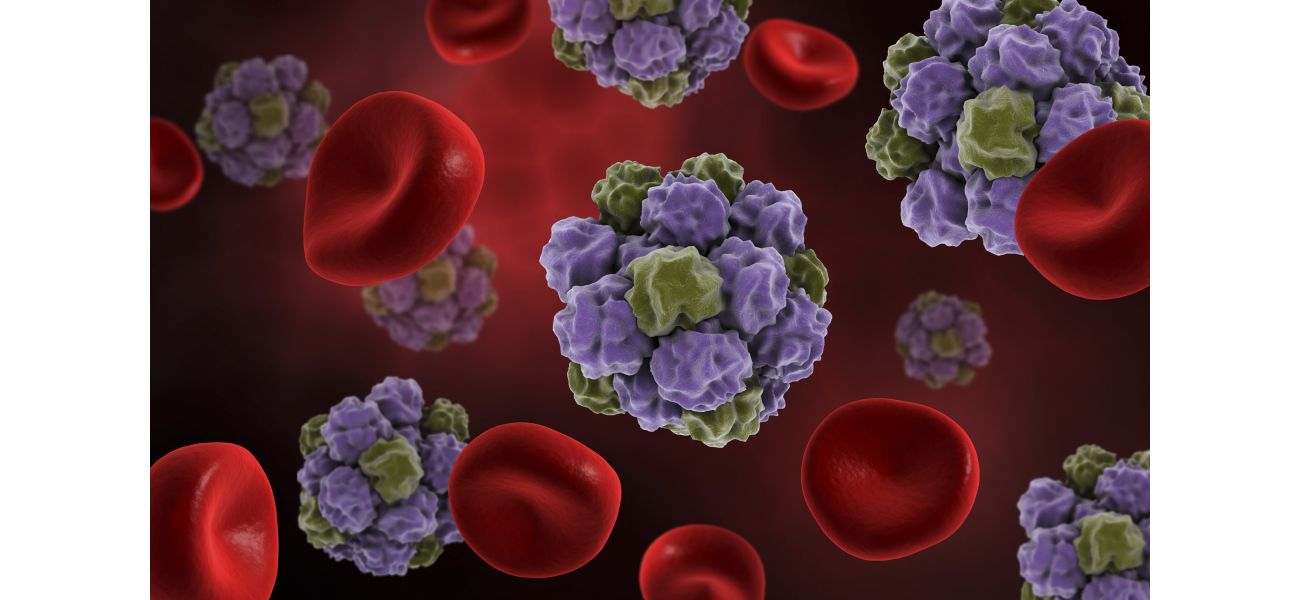Learn about the symptoms of Kawasaki norovirus, a highly contagious winter bug in the UK, and discover ways to prevent its spread.
New norovirus strain taking over in the UK. Know the symptoms.
November 10th 2024.

A new strain of norovirus has been causing quite a stir in the UK recently. Cases of this highly contagious winter vomiting bug have doubled in comparison to the average of the past five years. This new variant, known as "Kawasaki", first appeared in China and Japan in 2014, but has only recently made its way to Europe. The UK Health Security Agency has reported a significant increase in the number of norovirus samples containing this particular strain since April of this year. In fact, during the first 12 weeks of the 2024/2025 season, it was the most commonly detected genotype.
This new strain, GII.17, is now the dominant strain in the UK, surpassing the previously dominant GII.4. As a result, there has been a spike in cases of this unpleasant illness, which is especially concerning for places like hospitals and nurseries. The Hospital Norovirus Outbreak Reporting System has reported a 31% increase in outbreaks in recent weeks compared to the average of the past five years. However, it is worth noting that part of the reason for this increase could be due to improved testing and surveillance methods.
So, what exactly is the "Kawasaki" norovirus? Essentially, it is the same virus that we are all familiar with and unfortunately do not love. It still causes the same symptoms of diarrhea and vomiting, and some may also experience a fever and headache. However, similar to how Covid-19 has evolved into different variants with certain advantages that make it more contagious, the "Kawasaki" strain of norovirus may have some unique qualities that make it easier to spread.
In a recent study, Dr. David Allen of the London School of Hygiene & Tropical Medicine noted that this new strain, GII.17, has been associated with an increase in the proportion of norovirus cases. Interestingly, research suggests that having previously been infected with the GII.4 strain may not provide protection against this new strain. So, it is important to remain vigilant and take precautions to avoid catching norovirus.
If you do happen to become infected with norovirus, you can expect to experience symptoms such as nausea, vomiting, and diarrhea. You may also experience aches in your arms and legs, a high temperature, and headaches. Sadly, thousands of people in the UK end up in the hospital every year due to this virus, with a quarter of global deaths caused by norovirus being children. In the UK alone, there are approximately 80 deaths annually, with older adults and immunocompromised patients being most at risk.
To prevent the spread of norovirus, the NHS recommends washing your hands frequently with soap and water. This is especially important because hand sanitizers are not effective against this virus. So, it's time to bring back the good old fashioned hand washing technique and sing happy birthday while doing so, as this provides the best protection. Additionally, it's important to avoid close contact with someone who has the virus and to avoid eating food prepared by them. If someone in your household is ill with norovirus, using a bleach-based cleaner can help to prevent the virus from spreading.
But there is some good news on the horizon. The world's first vaccine against norovirus is currently being trialled in UK hospitals, using the same technology as the Covid-19 vaccine. The new mRNA vaccine from Moderna has shown promising results, with its final stages of testing set to begin in the coming weeks. Currently, there is no vaccine for norovirus, and those who become seriously ill often require treatment with intravenous fluids. Dr. Patrick Moore, the chief investigator of the study, noted that norovirus can affect people of all ages and is not limited to just the winter months.
In conclusion, while the "Kawasaki" norovirus may be causing some concern in the UK at the moment, there are steps that can be taken to prevent its spread. By regularly washing our hands, avoiding close contact with infected individuals, and maintaining good hygiene practices, we can reduce the risk of catching this highly contagious illness. And with the promising developments of a vaccine, there is hope for a future where norovirus is no longer a cause for concern.
This new strain, GII.17, is now the dominant strain in the UK, surpassing the previously dominant GII.4. As a result, there has been a spike in cases of this unpleasant illness, which is especially concerning for places like hospitals and nurseries. The Hospital Norovirus Outbreak Reporting System has reported a 31% increase in outbreaks in recent weeks compared to the average of the past five years. However, it is worth noting that part of the reason for this increase could be due to improved testing and surveillance methods.
So, what exactly is the "Kawasaki" norovirus? Essentially, it is the same virus that we are all familiar with and unfortunately do not love. It still causes the same symptoms of diarrhea and vomiting, and some may also experience a fever and headache. However, similar to how Covid-19 has evolved into different variants with certain advantages that make it more contagious, the "Kawasaki" strain of norovirus may have some unique qualities that make it easier to spread.
In a recent study, Dr. David Allen of the London School of Hygiene & Tropical Medicine noted that this new strain, GII.17, has been associated with an increase in the proportion of norovirus cases. Interestingly, research suggests that having previously been infected with the GII.4 strain may not provide protection against this new strain. So, it is important to remain vigilant and take precautions to avoid catching norovirus.
If you do happen to become infected with norovirus, you can expect to experience symptoms such as nausea, vomiting, and diarrhea. You may also experience aches in your arms and legs, a high temperature, and headaches. Sadly, thousands of people in the UK end up in the hospital every year due to this virus, with a quarter of global deaths caused by norovirus being children. In the UK alone, there are approximately 80 deaths annually, with older adults and immunocompromised patients being most at risk.
To prevent the spread of norovirus, the NHS recommends washing your hands frequently with soap and water. This is especially important because hand sanitizers are not effective against this virus. So, it's time to bring back the good old fashioned hand washing technique and sing happy birthday while doing so, as this provides the best protection. Additionally, it's important to avoid close contact with someone who has the virus and to avoid eating food prepared by them. If someone in your household is ill with norovirus, using a bleach-based cleaner can help to prevent the virus from spreading.
But there is some good news on the horizon. The world's first vaccine against norovirus is currently being trialled in UK hospitals, using the same technology as the Covid-19 vaccine. The new mRNA vaccine from Moderna has shown promising results, with its final stages of testing set to begin in the coming weeks. Currently, there is no vaccine for norovirus, and those who become seriously ill often require treatment with intravenous fluids. Dr. Patrick Moore, the chief investigator of the study, noted that norovirus can affect people of all ages and is not limited to just the winter months.
In conclusion, while the "Kawasaki" norovirus may be causing some concern in the UK at the moment, there are steps that can be taken to prevent its spread. By regularly washing our hands, avoiding close contact with infected individuals, and maintaining good hygiene practices, we can reduce the risk of catching this highly contagious illness. And with the promising developments of a vaccine, there is hope for a future where norovirus is no longer a cause for concern.
[This article has been trending online recently and has been generated with AI. Your feed is customized.]
[Generative AI is experimental.]
0
0
Submit Comment





